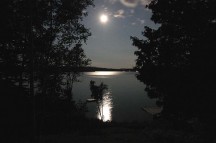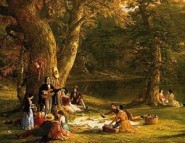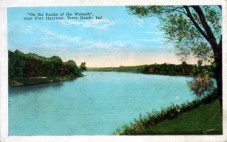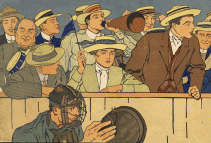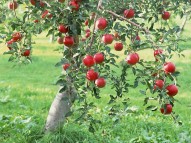By The Light Of The Silvery Moon/Moonlight Bay (4 Seasons/Summer)
"By The Light Of The Silvery Moon," 1909 Tin Pan Alley standard by famous children's troupe impresario Gus Edwards(music) and Edward Madden(lyrics). One of the countless "moon/June/croon/spoon" songs inspiring endless parody of early Popular American song...such as 1912's "Moonlight Bay" with (not surprisingly) the same lyricist Edward Madden, music by Missouri-born Percy Wenrich.
In The Good Old Summertime (4 Seasons/Summer)
Music by George Evans, words by Ren Shields, an immediate Tin Pan Alley classic introduced in 1902 by musical stage star Blanche Ring.
On The Banks Of The Wabash (4 Seasons/Summer)
Written in 1897 by Indiana native Paul Dresser, brother to novelist Theodore Dreiser. A Tin Pan Alley classic and one of the most recorded songs in the early days of recording. The chorus is an incomparable American pastorale, a romantic reminder of what was a predominantly rural America. For good reason, the official state song of Indiana.
Simple Gifts: A Midsummer Day's Dream (Winslow Homer) (4 Seasons/Summer)
Music and words composed in 1848 by Maine Shaker Elder Joseph Brackett (1797-1882). The song first reached audiences outside the Shaker communities through Aaron Copland's use of it in Martha Graham's 1944 ballet "Appalachian Spring." Paintings by New Englander Winslow Homer (1836-1910), painter, illustrator, lithographer. Noteworthy for his pastoral nostalgia and dramatic seascapes, much of it created in his hometown of Gloucester, Massachusett...
Take Me Out To The Ballgame (4 Seasons/Summer)
Lyrics by Jack Norworth, music by Albert Von Tilzer, 1908. Tin Pan Alley standard and the unofficial anthem of the Great American Pastime. First sung by Norworth's wife Nora Bayes who, with Norworth, also wrote "Shine On, Harvest Moon." Still traditionally sung during the 7th Inning Stretch.
Trees (4 Seasons/Summer)
Celebrated poem by Mahwah, New Jersey poet Joyce Kilmer (1913); set to music by American composer Oscar Rasbach (1922). One of America's most recited poems for generations, often the subject of severe literary criticism for its technical literary faults. For the less dogmatic and more romantic amongst us, an unabashed celebration of nature and its dominant place in the life of the human spirit.

